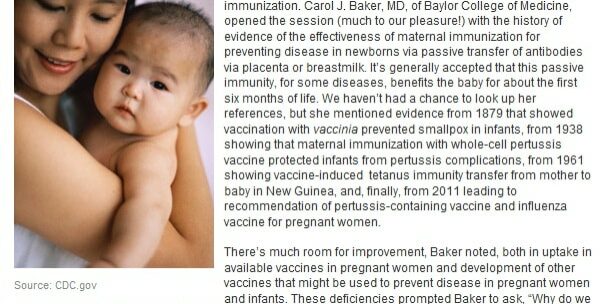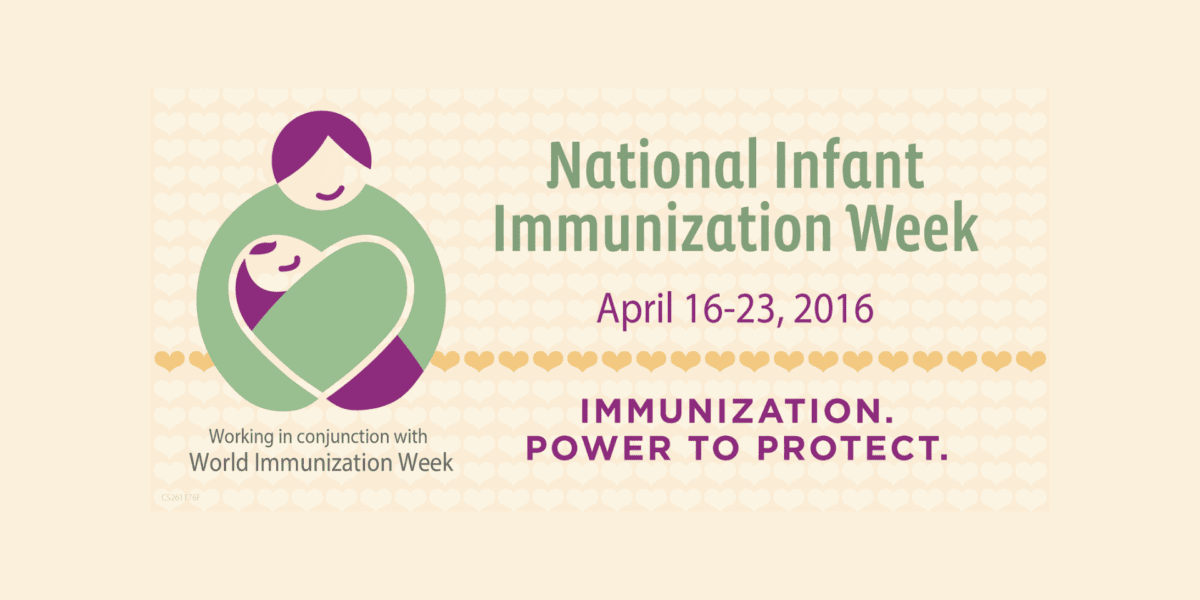
Thank you to Karie Youngdahl for blogging for The College of Physicians History of Vaccines on last week’s 16th Annual Conference on Vaccine Research. With National Infant Immunization Week taking place at the same time as the NFID conference, the coverage focused on the “Challenges for Future Disease Eradication by Vaccination” and “Prevention of Infant Infections and Maternal Immunizations” symposia.
NFID Annual Conference on Vaccine Research: Focus on Eradication
April 23, 2013
Karie Youngdahl
We’re spending National Infant Immunization Week in Baltimore at the National Foundation for Infectious Diseases Annual Conference on Vaccine Research. It’s three full days of sessions focused on research into existing and new vaccines, as well as research on epidemiologic and public health aspects of infectious diseases and vaccines. One of the main threads at the first day of the conference was disease eradication. DA Henderson, MD, opened the conference with a keynote address on the feat of smallpox eradication through vaccination. He highlighted the unique qualities of smallpox that made it an ideal candidate for eradication and compared some of these factors with parallel characteristics of polio. (Dr. Henderson discussed some of these characteristics in our interview with him.) In every category, polio is a more complicated disease.
NFID Conference: Challenges of Maternal Immunization
April 25, 2013
Karie Youngdahl
Day 2 of the National Foundation for Infectious Diseases Annual Conference on Vaccine Research included a focus on maternal immunization. Carol J. Baker, MD, of Baylor College of Medicine, opened the session (much to our pleasure!) with the history of evidence of the effectiveness of maternal immunization for preventing disease in newborns via passive transfer of antibodies via placenta or breastmilk. It’s generally accepted that this passive immunity, for some diseases, benefits the baby for about the first six months of life. We haven’t had a chance to look up her references, but she mentioned evidence from 1879 that showed vaccination with vaccinia prevented smallpox in infants, from 1938 showing that maternal immunization with whole-cell pertussis vaccine protected infants from pertussis complications, from 1961 showing vaccine-induced tetanus immunity transfer from mother to baby in New Guinea, and, finally, from 2011 leading to recommendation of pertussis-containing vaccine and influenza vaccine for pregnant women.
To join the conversation, follow us on Twitter (@nfidvaccines) and use the hashtag #ACVR.
Related Posts

Developing Improved Vaccines for Older Adults
By 2030, the number of adults age 65 years and older in the United States is expected to grow to 71 million—at least 20 percent of the total population. It is particularly important during this stage of life to maintain healthy lifestyles and habits. Receiving recommended immunizations is an essential part of that process.,,

A Forum for Cutting-Edge Vaccine Research Updates
The field of vaccinology continues to expand and innovate in basic science discovery, product development, market introduction, and adoption into immunization programs. Continual achievements are moving the field forward, with the expectation that many current, challenging diseases may become vaccine-preventable or vaccine-treatable in the near future…

Celebrating National Infant Immunization Week (NIIW)
The NFID 19th Annual Conference on Vaccine Research (April 18-20, 2016) organizers have developed a track of presentations and posters discussing maternal and infant immunization, in honor of National Infant Immunization Week.
